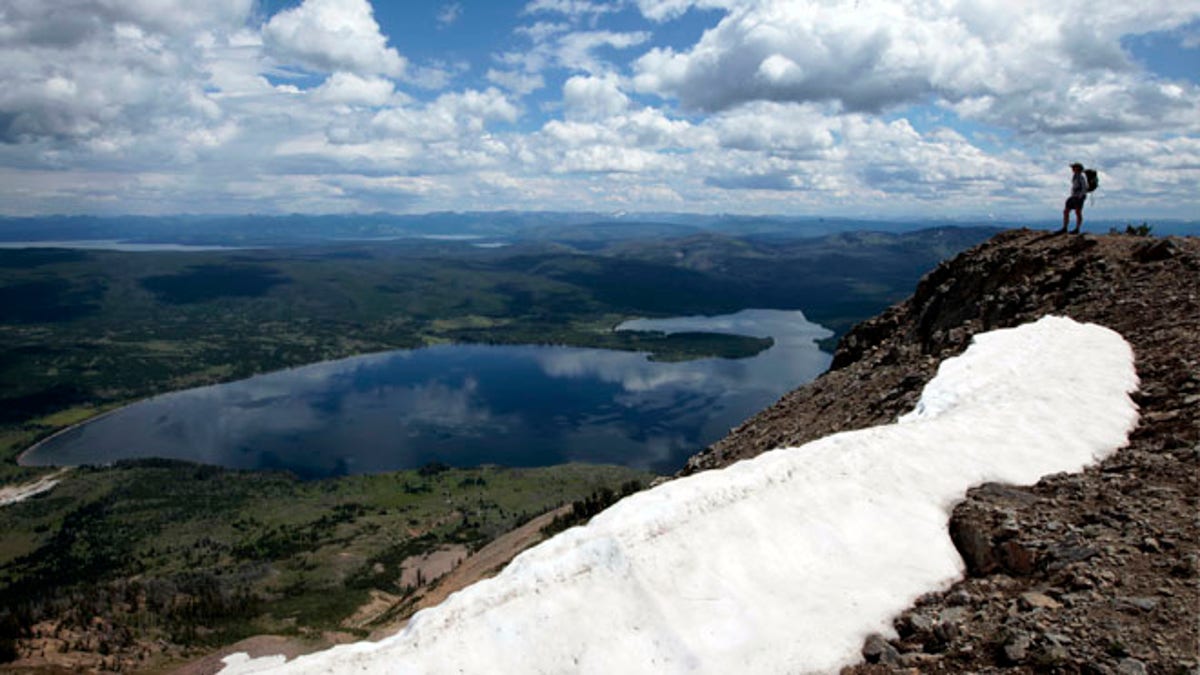
FILE: August 9, 2011: A hiker stands on top of Mount Sheridan, overlooking Heart Lake in the Red Mountains of Yellowstone National Park, Wyoming. (REUTERS)
As many as 200 parks across America could greet visitors with “Sorry, but we’re closed” signs come January unless Congress reaches a deal to stop automatic, across-the-board cuts to domestic and military spending -- including an estimated $218 million less to the National Park Service, according to a conservation group.
Most of the attention on the so-called “fiscal cliff” has centered on the defense side of the ledger. But the proposed park service cuts is one example of how everyday Americans might feel the pinch.
While the federal government is not saying how the cuts would be implemented, park advocates say the 8.2-percent reduction would have devastating consequences for the country’s 398 national parks.
"It would be the equivalent of closing 150 to 200 parks depending on how you looked at it," said John Gardner, a budget and appropriations analyst with the National Parks Conservation Association, an independent advocacy group.
While Gardner cautioned that's just one scenario meant to illustrate the size of the cuts, he stressed that some level of closures is likely, even if that means parks cutting back their hours or closing for certain days of the week.
Beyond that, the cuts, known as sequester, could result in the closing of campgrounds and visitor centers as well as reductions in the number of park rangers hired during busy months.
Tad DeHaven, an analyst with the libertarian Cato Institute, said the park service is "already spread thin" but questioned whether more funding is the answer.
"When you think of the millions of tourists that come through, there's really no excuse not to able to have money to pay for things," he said.
DeHaven also suggested policymakers allow states or the private sector to manage some parks.
"It's kind of a little example of a larger problem with Congress and their inability to handle everything on their plate," he said.
A NPS spokesman said the agency is "not discussing the impact of future budgets or the possibility of the sequester."
The $218 million cut total comes from President Obama's budget office, which did an estimate in September based on 2012 budget numbers.
The actual amount cut will come from the 2013 budget.
Dealing with the fiscal cliff -- either through a grand bargain that would offset the sequester or a short-term fix that would give lawmakers time to craft a larger deal – will almost certainly be a top priority for the lame-duck Congress after the elections.
Party leaders and the president have vowed to avoid the cuts, which are set to kick in Jan. 2.
Even if a lame-duck Congress is able to reach an agreement to avert the sequester, park advocates worry the NPS will be a target for future budget cuts.
"If they kick the can down the road until next year, then they're going to have to provide an offset," Gardner warned. "That becomes what we're already seeing -- a death-by-a-thousand-cuts scenario."




